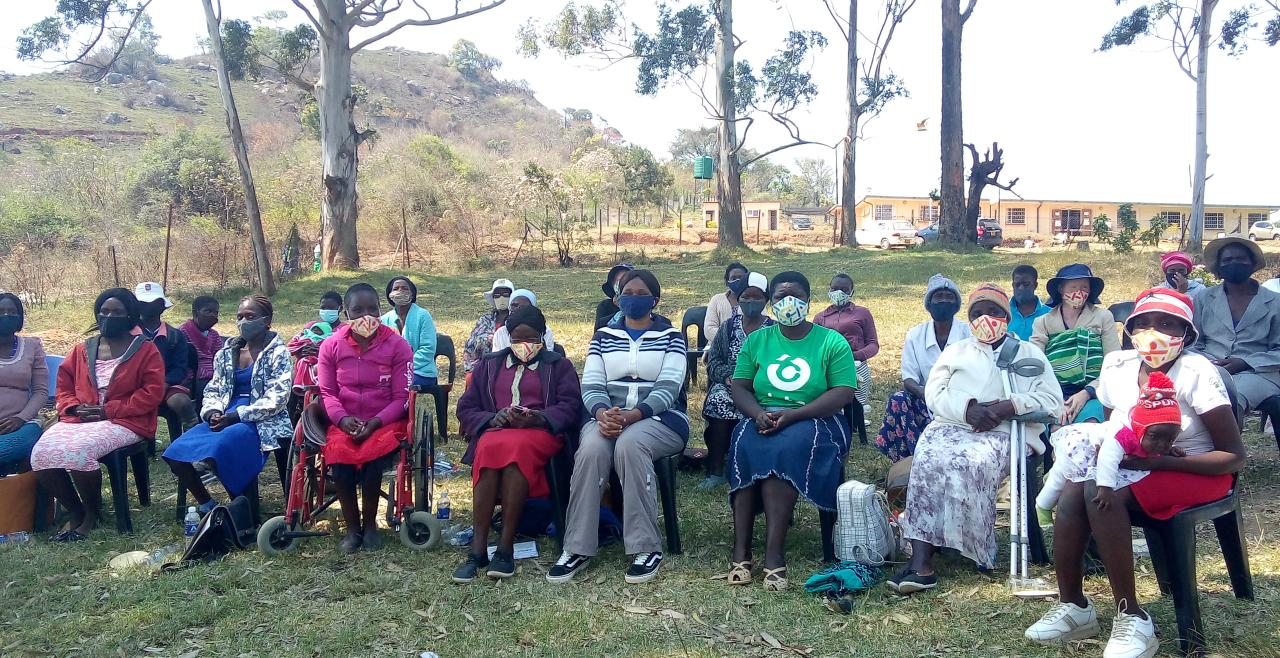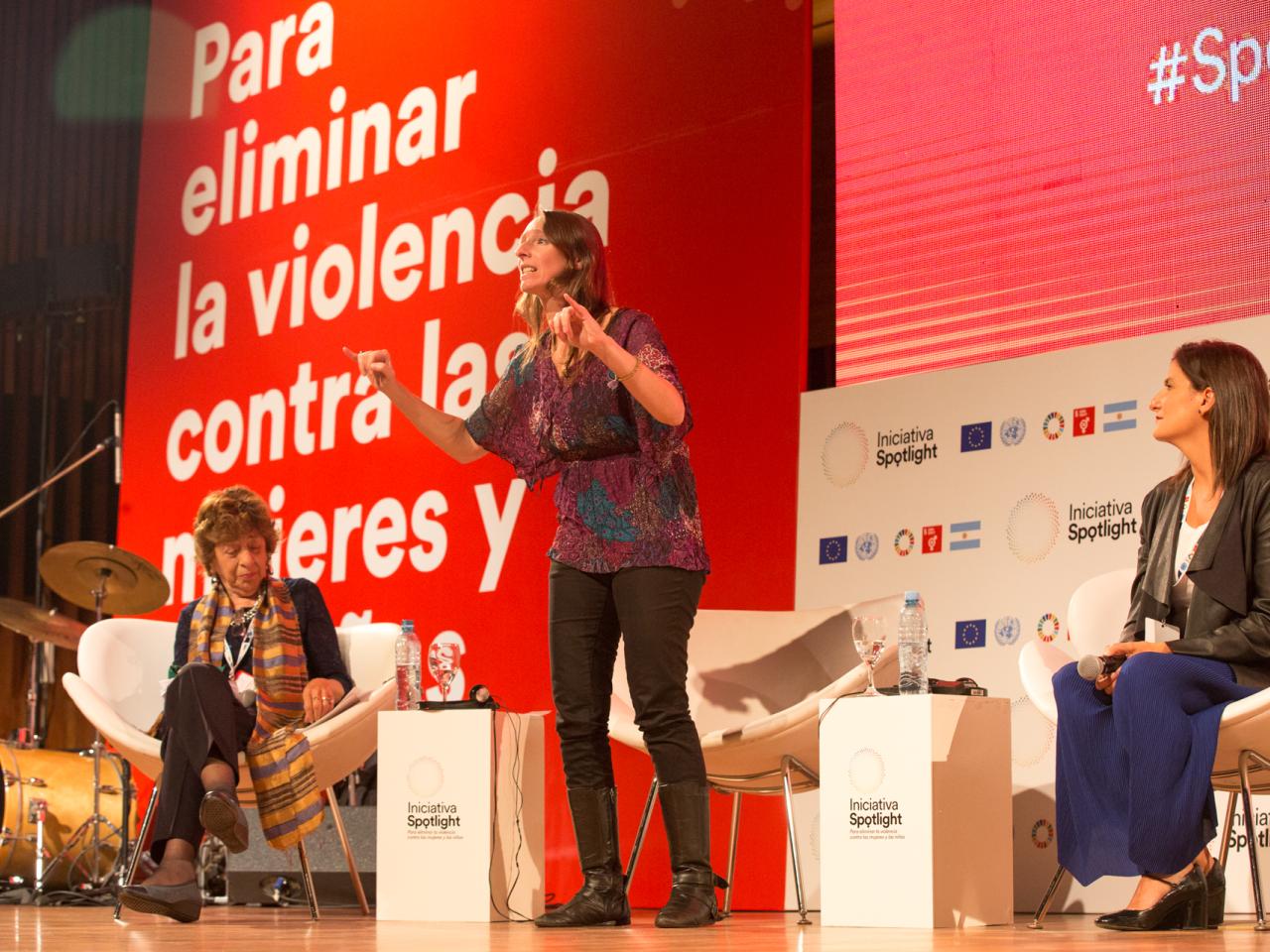In Zimbabwe, women and girls with disabilities are raising their voices

MUTASA DISTRICT, Zimbabwe – Lockdowns to curb the spread of COVID-19 have had a profound impact on the lives of millions of people around the world, however not everyone has been affected equally. Curfews and other travel restrictions have left many women trapped at home with their abusers, giving rise to a ‘shadow pandemic’ of violence. In Zimbabwe, one report that collected data from five women’s organizations found that reports of physical violence went up by 38.5 per cent during April and May, when lockdowns were put in place. This has particularly impacted upon women and girls who face intersecting forms of discrimination, such as those who have a disability.
“People with disabilities are considered second-class humans in my community... Some disabled girls even suffer physical abuse by their relatives or are locked in their homes." - Mary Mushayi*, 58
“People with disabilities are considered second-class humans in my community,” said Mary Mushayi*, a 58-year-old woman with a disability who lives in Mutasa District in Eastern Zimbabwe. “Some disabled girls even suffer physical abuse by their relatives or are locked in their homes and are not allowed to move around. Most of them are suffering in silence.”
Ms. Mushayi is one of 31 women who recently attended a Spotlight Initiative-supported training session in her community that aimed to equip women with disabilities with the knowledge and skills to advocate for their rights. The two-day training was carried out by the Federation of Organizations of Disabled People in Zimbabwe (FODPZ), a Spotlight Initiative and UNESCO implementing partner, and provided a platform for women and girls with disabilities to share their challenges and solutions.
During the sessions, the women learned about gender-based violence, sexual and reproductive health and rights, and harmful practices. They also received information on COVID-19 prevention, property and land rights, various forms of discrimination and advocacy strategies such as confrontational diplomacy.
"Personally [the pandemic] has affected me most in the restrictions of movement,” said Ms. Muyashi. “When the borders closed, our relatives could not send us money for groceries. We could not move around even to collect our parcels due to limited public transportation.”
“When the borders closed, our relatives could not send us money for groceries. We could not move around even to collect our parcels due to limited public transportation.” - Ms. Mushayi*
Women with disabilities are more likely to live in poverty, and many worried that that they could not afford the personal protective equipment (PPE) and hygiene products required to keep them safe from the virus. Ms. Mushayi had been sharing one mask with the rest of her household, which sometimes forced her to leave the house without it. To meet this need, Spotlight Initiative is working with FODPZ to ensure that women and girls with disabilities are provided with buckets for handwashing, hand sanitizers, face shields, liquid soap and washable masks.
Training sessions such as the one attended by Ms. Mushayi have been held in Umzingwane District in Matabeleland South and in Hopley, one of the most densely populated suburbs in Harare.
Original article published by UNESCO. Additional reporting by Ruvimbo Mushavi.
*name has been changed to protect privacy

